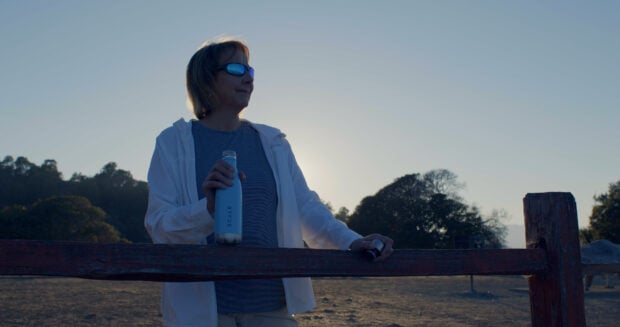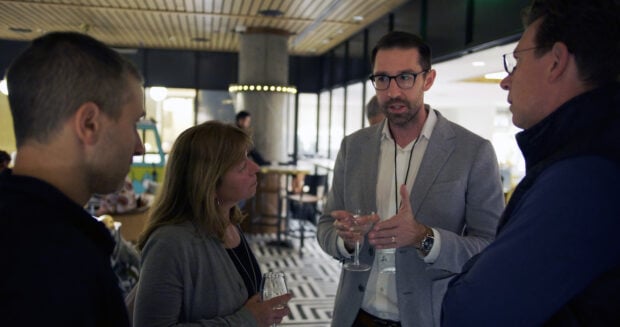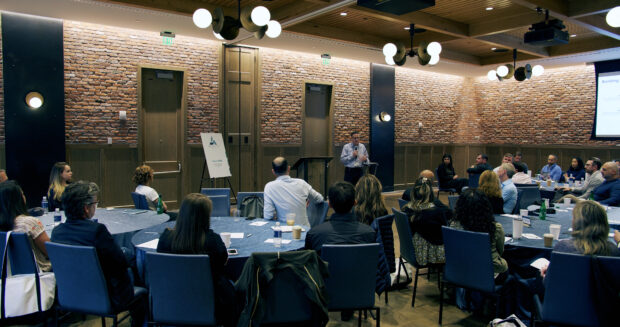[ad_1]
 The 2020s have already proven to be one of the most consequential decades in recent history, bringing generational change to how professionals live and work. Now more than ever, people are questioning what work means for them in the larger context of life.
The 2020s have already proven to be one of the most consequential decades in recent history, bringing generational change to how professionals live and work. Now more than ever, people are questioning what work means for them in the larger context of life.
Rise of the “great redefinition”
Attempts to identify and define this change came first from the tech world, with industry experts dubbing it the “great resignation,” “great reset,” “great awakening,” and ultimately, the “great redefinition.” The movement is characterized by a desire for greater professional fulfillment, purpose, and meaning, and a will to assert greater ownership and autonomy over one’s career.
In a recent article for Inc. entitled “People Aren’t Just Quitting Their Jobs. They’re Redefining Success,” Arianna Huffington opines that although most stories cite burnout as the reason, burnout alone “doesn’t fully explain the phenomenon … What the pandemic did was give us time to think about what we really value, and the place of work in our lives. Which is to say, there’s something deeper at the heart of this great awakening: a collective redefinition of success.”
Huffington frames this as a “once-in-a-generation opportunity” to redefine the way we work, keeping the parts that make us thrive, and leaving behind the parts that don’t.
The spread to the legal profession
The “great redefinition” is industry-agnostic, and the legal industry has been one of the most affected, likely due to the high levels of job dissatisfaction that existed pre-pandemic. In Axiom’s 2022 In-House Counsel Survey Report conducted among 300 in-house counsel between May 23 and June 3, 2022, a whopping 93% say that they’ve recently re-evaluated what’s important in their legal careers as a result of the pandemic.
On the law firm side, the Wolters Kluwer Future Ready Lawyer Survey 2022 of 751 legal professionals reports that 57% of law firm attorneys are very to somewhat likely to leave their position in the next year, and 72% expect to work remotely all or part of the time.
In Above The Law’s Associate Perspectives on the New Normal report, a survey of 500 associates at law firms, more than 40% plan to leave their firms within the year or within the next 2 years. A majority (69%) stated a desire for better work-life balance is a primary factor. Associates overwhelmingly want to keep working remotely and 40% don’t see partnership as their future path.
A new definition of success & the rise of a new practice model
While some law firms doubled-down on the model that led to so much dissatisfaction in the legal industry, others have proven more nimble by allowing attorneys to work from home at least a few days a week. Others have gone further, reevaluating work location, billable minimums, and the economic model that drives high rates and long hours.
Six years ago, after practicing in Biglaw and serving as GC for a fast-growth fintech startup, Adam Forest wanted to go back to private practice. Looking at the legal market, he didn’t see the kind of firm he wanted to join, so he built one.
As Scale’s Founding Partner, Forest says, “When we set out to build Scale LLP, we asked ourselves this one question, ‘What if we built a law firm with lawyers in mind? One that empowers lawyers with an economic model that is more favorable, one that lets them take home more of the value they create, one that allows them to work when and where they want.’”
Scale attorneys can work less than they would at a traditional firm yet keep more of the revenue they generate, all while providing more responsive, cost-effective service to clients. “The flexibility and the time that attorneys get back results in a more fulfilling, sustainable practice for the long haul. One that is a better experience for both attorneys and clients,” says Forest.
When the pandemic hit, Scale experienced a flood of applications: more than 5,000 in two years. It turned away the vast majority, inviting less than 2% to join the firm. “We wanted to build the first truly prestigious ‘virtual’ firm,” Forest said, “and debunk the notion that in order to practice with the best attorneys and clients in the world, you have to give up everything to do it.”
Forest partnered with David Reidy, a former McGuireWoods equity partner and General Counsel at fintech company Payactiv. As Managing Partner, Reidy sets the firm’s vision. “Scale’s philosophy is that happy lawyers make happy clients. We are experiencing a generational change in the way people work and in the way lawyers want to work. Scale was built for this moment.”
In the traditional law firm model, attorneys give up 60 to 70% of their fees to cover the equity partnership structure, expensive office space, and other overhead. With remote work here to stay, that traditional model is getting harder to justify.
“More attorneys are realizing that model doesn’t fit with their practice or with their lives,” says Reidy. “We’re competing for the best talent in the country. We believe the best way to attract that talent is to create an environment where those lawyers can build, grow, and thrive by defining success on their own terms.”
“We define success differently, by reference to the individual successes of our attorneys,” says VP of Talent, Jessica Sisco. For some attorneys, success is building a more fulfilling practice with flexibility to be able to be a more present parent. For others, it’s growing a high-quality practice to better serve clients and make more money from the value they create. Finally, those who have achieved building and growing are getting to the next level – thriving in all areas with greater purpose in service of the larger community in work and in life.
Building a more fulfilling practice that’s family-friendly
With a decade of legal experience under his belt, Doug Mitchell knew that the work he was doing could be done remotely, without the expense and effort associated with a physical office, and without sacrificing the quality of his work. Mitchell, who had already been working remotely prior to the pandemic, found that he was able to build a fulfilling practice where he had more time for what he values most in life – his family.
“Family is being part of your children’s life and being there. I took that into my career as an attorney of what’s important to me,” says Mitchell. “I think there’s always the image of attorneys that work at Biglaw that they are grinding out 2200 hours. They hate their life. They have no work life balance. All they do is work. If you’re talented and efficient in the legal field where it’s about the experience and skill of the individual, you can take that talent somewhere else. Look for what you want and go for it!”
Realizing that the pandemic would forever change the way business and legal work was done, Mitchell joined Scale to be at the forefront of that change.
“I now work when, with whom, and where I want,” says Mitchell. He further adds, “the culture just fits – it’s a group of highly-talented attorneys that have their priorities straight. We pride ourselves in providing top-tier quality legal service, value our clients, believe in what we’re doing – and on equal footing with all of the above – we value our lives outside of work. We also firmly believe that none of those things are dependent on having an expensive office lease.”
Growing a high-quality practice within a more efficient model
Eric Blatt worked at the U.S. Patent and Trademark Office and a highly-regarded IP litigation firm in Washington, DC prior to becoming a Partner at Scale. Combining expertise in intellectual property law and government contracts, he developed a unique practice focused on venture-backed startups conducting high-impact R&D funded by the Department of Defense and other federal agencies.
Blatt realized his high-growth startup clients needed a different type of mindset and broader capabilities than his prior firm could provide. He was introduced to Scale by a friend at a startup accelerator, and, after researching and speaking with attorneys at the firm, he concluded that Scale offered a better fit for what his clients needed: efficient and skillful attorneys who can address the full range of startups’ legal needs and are driven to provide actionable advice at a lower price point.
“I put adding value for clients first,” says Blatt. “If you focus on helping people, the money takes care of itself. Scale eliminates the ‘tax’ that traditional firms place on both clients and attorneys. If you do that, everyone wins.”
When asked what advice he would give to other attorneys, Blatt responds, “If you’re where I was and you have clients who will move with you, it’s an easy decision – you will make more money on the other side. The economics are better for your clients and for you, and you will have fantastic colleagues to support you.”
Growing a practice to fit your life values
After serving as an Administrative Law Judge and in-house counsel at five different companies, including Coinbase, Maribeth Bushey wanted to build a new type of legal practice built around the things in life that are important to her – serving in public office, raising successful kids, gardening, traveling the world, and even climbing the highest mountain in the US. All while curating a portfolio of intellectually challenging matters with entrepreneurial clients she loves.

Maribeth Bushey, Counsel at Scale LLP, taking a mid-day hike on the bay trail near her home in San Rafael, CA.
“It’s possible to make your practice and your life what you want it to be,” says Bushey, Counsel at Scale based in San Rafael, CA. “I’d just come off of four years in a tech startup and was not looking for a traditional law firm – 14 billable hours a day, all of that grind. I wanted to have a practice that was right for my life now.”
For those who come from in-house and may be concerned about not having a sufficient book of business, Bushey says, “I started with one primary client but was able to grow my practice by collaborating with other Scale attorneys.”
“If what you want for your practice is to maximize personal revenue, go for it. There’s a whole range of options. If you want other things in your life, then you can do that as well. That’s the beauty of Scale – it can change as your life changes.”
Thriving with purpose in all areas of life
Scott Wiegand left behind both a Biglaw partnership and senior in-house roles at Fortune 500 companies, including Caesars Entertainment, to build a new type of practice.
“As an in-house lawyer, you have exposure to every kind of law there is. I was able to steer my practice in a direction that worked for me. But I was working long hours in very stressful environments, and it made me stop and think about what I wanted next for my career.”
After 18 years in-house, Wiegand realized that he enjoyed the greater autonomy of a law firm and variety of working with multiple clients. He also wanted to move his practice from Las Vegas to Denver to enjoy the Colorado outdoor life with his family.
After three years with a large Denver-based law firm, Wiegand realized he wanted to spend more time working with startup founders while maintaining his existing practice with institutional casino gaming industry clients. The Scale model gave him the autonomy and flexibility to pursue that direction. “I’ve been really, really happy with that choice,” says Wiegand.
When asked what success means, he responds, “For me it means working with clients I enjoy, with lawyers I enjoy working with. I’ve found Scale’s model to be incredibly liberating. It frees me up to focus on being a lawyer and not worry about all of the office politics and things that so many law traditional firms experience. The way Scale is structured fosters happy people, and I think life is just too short to work with grumpy people.”
As he sets off in his jeep to go offroading in the Colorado mountains, Wiegand smiles and says, “I’m at a point in my career where I have the luxury of choosing to work on things that are lucrative for the soul as well as for the pocketbook.”
The winning formula for “lawpreneurs”
Modern practice models like Scale may not be for everyone, but for the growing group of entrepreneurial attorneys who are redefining success in the practice of law, it seems to be the winning formula.
[ad_2]









